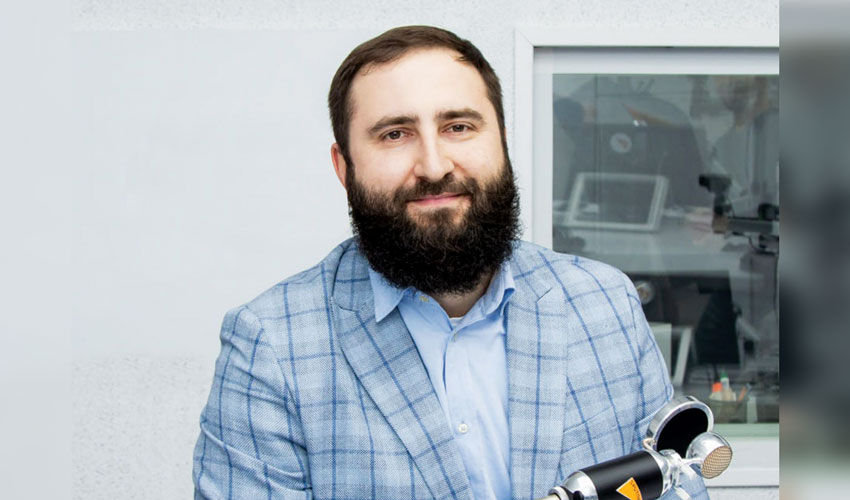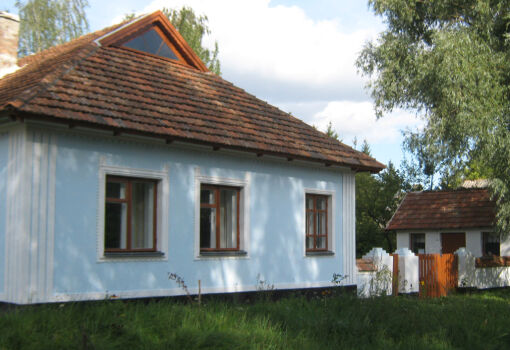
Andrei Krigan
These and other data were presented at the next event of the Export Vision series, organized by the Investment Agency on September 24. The UAE ranks 17th in the ranking of Moldovan investors, with more than 40 companies registered with capital from this country. Moldovan exporters supply the UAE with fresh fruits, ice cream, medicines, electric machines, cereals and cereal-based preparations, clothes and accessories, alcoholic and non-alcoholic drinks, dried fruits, etc.
“The UAE market is strategic for Moldova in terms of agricultural exports, it has a huge potential that Moldovan business has yet to master,” says Corneliu Spinei, Head of the Export Promotion Department of the Agency. – Recently, there has been a trend to export services to this country. Apart from the IT sector, Moldovan companies provide consulting services, call centers, accounting, etc.”.
During the event it was noted that in the UAE export procedures are quite simple, and if a company has the necessary international certificates, it is not difficult to enter its market. In the Emirates, national standards are harmonized with international standards. At the same time, bureaucracy is minimal. Since 2018, the embassy of Moldova has been working there, although there is no trade attaché. But the problem with air travel has been solved with the arrival of FlyDubai on our market.
Artrocket sells software in the UAE to connect designers, suppliers and clients. The specialists have been developing their product for three years. Today, in addition to the UAE, it has been implemented in Moldova and Romania. “We have been in the Emirates since May this year,” says Dmitry Galiliuc, director of the company. – There they don’t like speed and value personal connections. You need to be ready for things to happen differently than in our space, where they can agree in the morning so that everything is already working in the evening. There, they like to meet and pre-communicate. In Dubai, it takes about six months to make those connections and get the business up and running. To date, we have signed contracts with three companies. In total, about a hundred customers have bought our product.”
“The first container with Sandriliona ice cream went to the Emirates in 2017,” says commercial director Denis Bumakov. – We started supplying this region in 2005. First to Iraq, then to African countries. Three years ago we commissioned a factory in Iraq, because in 2021 the government of this country decided to ban imports of ice cream, and we had to quickly build a plant in order not to lose the market and consolidate the positions we had gained. Today it is in the list of the top 10 factories in the world in terms of implementing the most modern ice cream production technologies”.
The company plans to build a new factory. “At this stage we are maximally loaded,” he continues. – After receiving a certificate for export to Europe in 2022, we have established ice cream deliveries to Romania, Albania, Kosovo, Bosnia and Herzegovina, Germany, Cyprus, Greece and Lithuania. We have serious plans, but the workload of the factory does not allow us to take on new contracts”.
In the UAE, Sandriliona has opened its own distribution company, so it’s easier to work there. “There are no difficulties in this market, but there is a peculiarity – the products must have a document that they are prepared according to Halal technology,” explains the specialist. – explains the specialist. – We first entered the UAE with a premium product for HoReCa, Prestij, and now we sell the whole line. Today, 80% of sales are premium products.
The strategy for the company’s entry into the market was to first tie up with a chain of local grocery stores. They don’t have an entry fee like international retail chains, where it can cost $10,000 to $15,000 a year to enter for a single product. “That is why we decided to get known in local stalls, so that later, when the company decides to invest in entering large chains, it already had its own groundwork and reputation in the market,” said commercial director Denis Bumakov.
Interest in the United Arab Emirates market is growing, as evidenced by the full hall in which the event was held. A representative of a construction company was probing the ground to enter the actively developing real estate market. However, on the sidelines, experts expressed skepticism in this regard, explaining it by the fact that we have both building materials and construction itself is more expensive, and there are no problems with labor there, so there are few serious chances. But there is an opportunity to promote design and engineering in this market.
“So far this is not a priority market, because our trade turnover is small,” says expert Andrei Krigan (Gateway&partners). – But it is growing rapidly. Economic and trade relations on it are developing rather situationally than purposefully. But since it is a trade hub, you can learn a lot there. Besides, it is an interesting market. because it is open and with minimal taxation. Entrepreneurs pay mostly for start-up and business services. Companies leave money in the UAE economy not in the form of taxes, but through spending on it.”
He notes the insufficiency of the dialog with the authorities of this country in terms of explaining our status: “We need to talk more about the fact that Moldova is completing the screening of the legislation and starting negotiations on joining the European Union. This means that a lot of things that are required on their market are being changed in our legislation in accordance with the requirements of the European Union. This process should be promoted because it confirms the reliability of our products and services. They will not need additional certification.
Export Vision participants pointed out one specific point that fresh fruit suppliers should pay attention to if they want to work in the UAE market. The quality requirements there are very high, even the color, and they do not buy all our varieties. But it pays off with high prices for them.
This was reported by the administrator of the company Pro Inedit Victor Kazaku. This is a large company, which sells fruit in many countries, including the Emirates, exporting about 10 thousand tons a year. Victor Kazaku believes that it is easier to export fruit to the EU than to the UAE, because there they work only with distributors, not directly. It is all the more important that exporters do not create additional problems at home.
“In Moldova, exports require certificates of origin of goods, which is issued by the CCI,” he said. – And it is more difficult for me, a non-producer, to collect them. It is an additional cost. I, as a seller, do not see the need to present this certificate if we have a preferential sales regime.”

